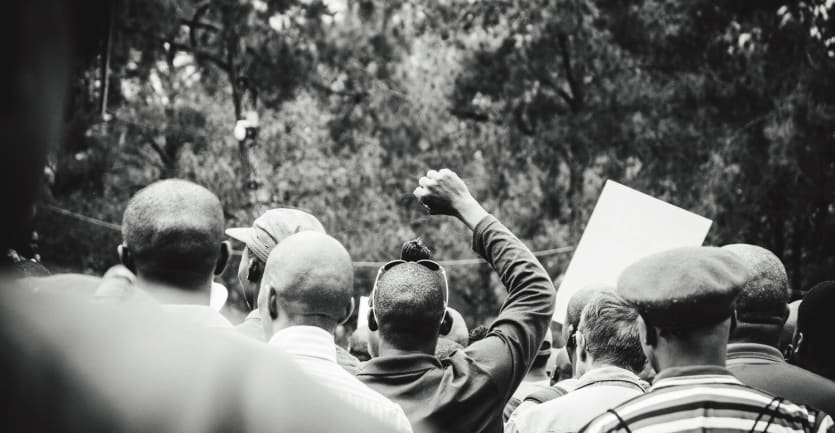Free Online Courses on Race, Racism, and Racial Justice
As millions across the U.S. mourn the murders of George Floyd, Breonna Taylor, Rayshard Brooks, and other innocent people of color — all of whom lost their lives as a result of police violence — the conversation on racial injustice grows louder and stronger.
Education on race, diversity, and inclusion is essential for everyone, particularly non-Black allies.
For centuries, structural racism in the U.S. has led to vast inequities, racial prejudice, and acts of violence toward people of color. That’s why education on race, diversity, and inclusion is essential for everyone, particularly non-Black allies, to better understand the injustices that African Americans have experienced over the last 400 years.
To help deliver a deeper understanding of these topics, colleges and other organizations across the country are offering free online courses and resources specializing in matters of race/racism, equity, diversity, and inclusion.

Free Race, Diversity, and Inclusion Online Courses
Focusing on race and diversity in the U.S., this course examines the cross-cultural relationships of the different ethnic groups that make up modern-day America. Students learn about the ways diversity has shaped the U.S. and its vital role in disrupting institutional racism.
Covering the history of the African American experience from 1863 to the present, this course looks at racial oppression through themes like urbanization and the emergence of the modern civil rights movement. You’ll study the lives of prominent civil rights leaders, including Booker T. Washington, Martin Luther King Jr., and Malcolm X.
Rather than promoting a single ideology, this course aims to enhance your knowledge of all perspectives by providing a strong basis for your own views and encouraging discussions with others, specifically those with whom you disagree. You’ll study the purpose of government and examine philosophies of both historical and contemporary thinkers, such as Plato, Aristotle, Elizabeth Anderson, and Kok-Chor Tan.
For those looking for a beginner-level introduction to social justice, this course explores how compassion and community can drive positive action and change. You’ll study the works of various authors and activists who discuss how love is defined and manifested across multiple religions, philosophies, and social perspectives.
Though the Civil War led to the emancipation of millions of enslaved African Americans, the cruelties of racial prejudice persisted long after. This course takes a look at the decades leading up to the abolition of slavery and its consequences, in addition to issues related to discrimination and social processes. The class is divided up over 27 lectures and allows you to watch pre-recorded videos at your own pace.
This class expands upon Martin Luther King Jr.’s nonviolent advocacy efforts and his most significant speeches, writing, and unpublished manuscripts. You’ll gain a more in-depth understanding of King’s significance to the civil rights movement and develop a greater sense of how to use facts and context to engage in peaceful discussions on race and equality. The instructor offers weekly Zoom calls for anyone who wants to talk about the course material in more depth.
While the 19th Amendment established women’s right to vote, existing prejudices and traditional domestic roles limited inclusion and equality in the workforce. In this course, you’ll examine the challenges and opportunities that emerged for women, especially women of color, in the early to mid-20th century.
Instructed by historian Clayborne Carson, the director of Stanford’s Martin Luther King Jr. Research and Education Institute, this online course covers the most significant protests and movements since 1930 to provide both historical context and a greater understanding of the modern plight of African Americans. Over the course of 18 classes, you’ll study civil rights leaders who have fought — and continue to fight for — equality and justice. Lectures are available to watch through YouTube and iTunes.
Understanding the history and purpose of the modern civil rights movement is especially relevant today. This online class allows you to gain a better perspective on African Americans’ struggles for equality. You’ll learn about the history of the campaigns, the groups that comprised the movement, and the nonviolent demonstrations held by prominent civil rights activists.

Online Resources for Studying Race, Diversity, and Inclusion
Arguably the most immediate resource to educate yourself on issues related to racial injustice and equality, Black Lives Matter offers several toolkits that highlight the history of the movement and the activists fighting for equality. For non-Black allies, Black Lives Matters also features a resource that describes how to properly acknowledge and commemorate Trayvon Martin, a young African American boy who died as a result of racial violence.
For those interested in learning how to speak constructively about race, the National Museum of African American History and Culture offers dozens of online resources to help allies engage in these conversations. Through readings and videos, these materials address a variety of topics, such as understanding white privilege, the foundations of race, and nonviolent methods for confronting racism.
Many of the museum’s resources are crafted by distinguished education writers, civil rights activists, and professors who have dedicated their careers to researching the unequal treatment and systemic issues that people of color face in the U.S.
While the primary mission of this organization is to provide schools and communities with racial justice training, it also hosts an extensive collection of resources.
Those looking to educate themselves on the meaning of Black History Month, for example, can access hundreds of articles and collected works by renowned authors from diverse backgrounds. These works highlight the voices, stories, and purpose of Black History Month, as well as how individuals, particularly non-Black allies, can advance equality and disrupt systemic racism. Parents can also access articles that explain how to discuss prejudice and discrimination with their children in a constructive, sensitive, and age-appropriate manner.
Teaching Tolerance — an organization dedicated to educating people about race, racism, and police violence — offers an array of resources to encourage and guide discussions on prejudice and systemic racism.
One distinct component of this organization’s resources is its featured stories section, in which authors and educators contribute stories and secondhand accounts of racism. These anecdotes, albeit difficult to read, emphasize the prominence and severity of nonviolent racism in everyday life. You can also access Q&A sections and classroom materials outlining how to properly address biases, stereotypes, and white privilege.
It’s Nice That features numerous articles and a section for acclaimed books that cover topics like white supremacy, diversity, and the history of racial injustice in the U.S. You can also find podcasts discussing the history of racism and slavery. If you’re seeking ways to actively contribute to equal justice initiatives, this learning platform compiles dozens of charities, funds, and organizations you can donate to, as well as petitions demanding justice for the recent killings of George Floyd, Ahmaud Arbery, Belly Mujinga, and Breonna Taylor.
Yasin Ozturk / Anadolu Agency / Getty Images